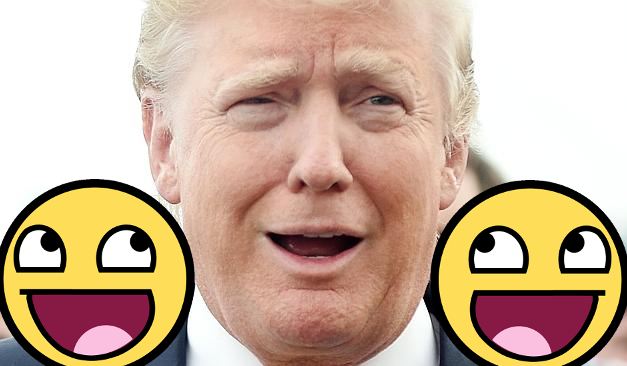Kevin MacDonald
Occidental Observer
October 30, 2015
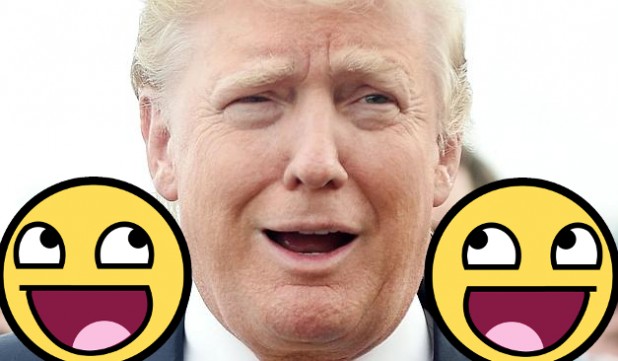
There is some anxiety among Jews about Donald Trump’s candidacy. In fathoming why this might be, one could perhaps start by asking how Trump departs from the ideal presidential candidate. For Jews, the ideal candidate is (1) predictably and fanatically pro-Israel; (2) predictably liberal/left on social issues, particularly anything related to immigration and multiculturalism; and (3) in need of big campaign money contingent on satisfying (1) and (2). There can be little doubt that Jeb Bush, who was the early favorite of Sheldon Adelson and the Republican Jewish Coalition, filled the bill quite well. But Bush now seems to be fading, with Adelson leaning toward Marco Rubio — he of the Gang of Eight immigration amnesty/surge bill and saying all the right things about Israel and the Middle East.
Trump would seem to be acceptable on Israel given his statement that “We love Israel. We will fight for Israel 100 percent, 1,000 percent. It will be there forever.” On the other hand, he does not come across as an ideal neocon candidate, having stated that he would not have invaded Iraq (a triumph of Israel, the neocons, and the Israel Lobby), opposes using US force for “nation-building” (another favorite neocon policy and one of the rationales for the Iraq invasion), and for his recent statements on Syria— that Putin’s support for Assad makes more sense than the US policy (“we don’t even know who we’re backing“).
And of course, Trump has long-term business connection with Jews, Jews have highly visible positions in his campaign, and his daughter has converted to Judaism. But despite all that, there have been several examples where well-connected, high-profile Jews have expressed anxiety about Trump precisely because of their Jewish identity, and it seems to me that the common denominator here is nothing less than that they see Trump as undermining elite consensus on immigration and the moral imperative of the end of White America. Or to put it less delicately, they see Trump as potentially leading to a fascist counter-revolution that would spell the end of the project, very much promoted by the Jewish community, of creating a multi-cultural, non-White America completely cut off from its pre-1965 moorings.
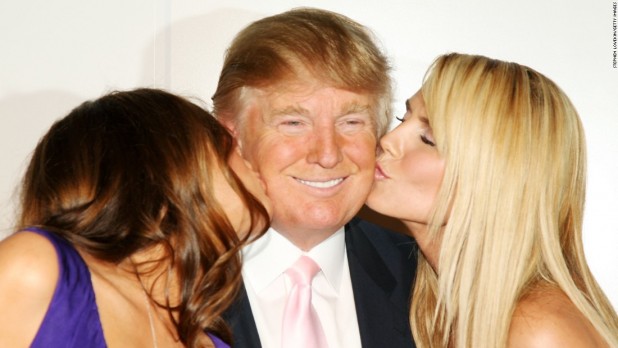
As often noted here, mainstream Jewish political attitudes and behavior in the US from the far left to the neoconservative right — as exemplified by the successful campaign to enact the 1965 immigration law and continued support for high levels of immigration by the entire organized Jewish community — has always been directed at lessening the demographic, political, and cultural power of White America. There are two main reasons for this — concerns that a homogeneous White America could ultimately rise up against Jews as occurred in Hitler’s Germany (see here for discussion of a recent example), and antipathy toward Christian Europeans as an outgroup seen through Jewish perceptions of historical anti-Semitism.

Indeed, Republican Jewish activists have an uphill battle getting Jews to vote Republican despite the rabid pro-Israel rhetoric emanating from the GOP and assurances from Republican Jewish activists that the Republican Party has become a party of tolerance and pluralism. The basic problem is fear and loathing of the serious Christians among the White Republican base. As Kenneth Wald, a political science professor and the Samuel R. “Bud” Shorstein professor of American Jewish Culture & Society at the University of Florida, notes,
Apart from getting rid of their base — evangelicals — I don’t see a way for Republicans to make really deep inroads in the Jewish vote. … They’ve essentially got the Jewish voters who they’re going to get, and it’s essentially the same group they’ve had for a long time, probably about a fifth to a quarter of the [Jewish] population. (“Florida’s Jewish voters a target for Republicans, but a near lock for Democrats,” Tampa Bay Times, May 22, 2015.
This recalls the comment of Israeli patriot Elliott Abrams acknowledging that the mainstream Jewish community in America “clings to what is at bottom a dark vision of America, as a land permeated with anti-Semitism and always on the verge of anti-Semitic outbursts.” Serious Christians tap into primal Jewish fears.
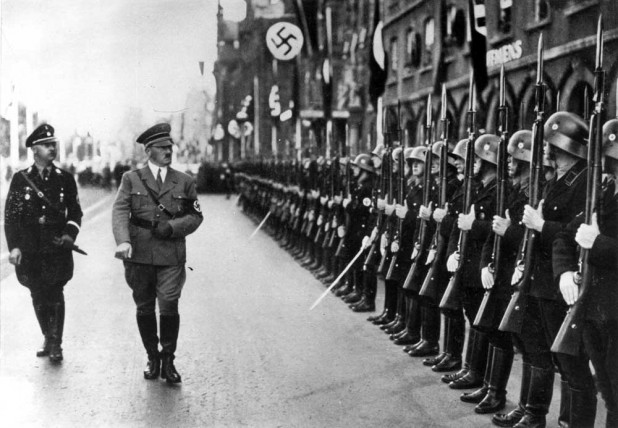
Obviously, these attitudes on immigration do not apply to all American Jews, but they do represent the thrust of Jewish power in the U.S. We know this is not a principled stance but rather is a form of ethnic strategizing in the diaspora because the organized Jewish community also supports Israel as a Jewish state that restricts immigration of non-Jews and is actively involved in the dispossession of the Palestinians.
Donald Trump’s candidacy plugs into some of these fundamental Jewish attitudes about America as a White, Christian society. Some quotes:
“There are a lot of folks who are, to be charitable, into white identity politics, and to be uncharitable are outright racists, who are supporting Trump,” said Nathan Wurtzel, a Republican political consultant and principal at The Catalyst Group, who is Jewish. “It’s very off-putting and disturbing.” (“Donald Trump’s Rise Sparks Widespread Angst Among Jewish Republicans“)
The concern that “White racists” support Trump is the focus of several articles, including Evan Osnos’ “The fearful and the frustrated” (the title is yet another example of psychoanalyzing away legitimate White interests) and Donald Perlstein’s “Donald Trump, American hustler: The frightening fascist tendencies of his GOP rise.” But why be concerned about the support of a tiny part of the electorate that explicitly voices White identities and interests? It is actually a guilt-by-association argument where the real concern is that Trump will do something on immigration, legal and illegal, that would slow White dispossession (policies that are obviously supported by White advocates but also by most Americans). This could then perhaps snowball into something far greater, with unknown consequences. Once rhetoric and policies opposed to immigration becomes legitimized, there is no telling where it will lead, and that is a huge concern for these Jewish activists. The fact is that Trump’s statements on immigration have tapped into a groundswell of popular sentiment, propelling him to a lead in all the polls. As Peter Brimelow noted, “objectively, Trump’s historical function is clearly to break the Washington Cartel and to bring the immigration issue into politics.”
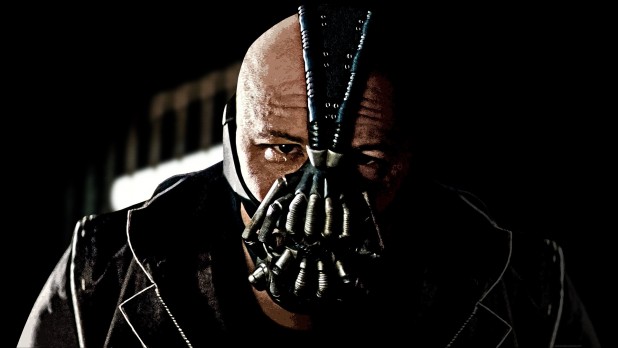
Until Trump came along, there really was no mainstream politician and almost no media voices (Ann Coulter and Pat Buchanan are exceptions) that were mentioning birthright citizenship, immigrant crime, or the effects of legal immigration on the labor market. White Americans are a sleeping giant, lulled to sleep by the media, by cuckolded politicians, and by the creation an atmosphere of fear where discordant opinions are severely punished by job loss, ostracism, etc., while there are huge rewards for going along with the status quo. Jewish academic and media activists have spent the last century promoting the idea that White racial/ethnic interests do not exist, but they are well aware that this is a spark that can be lit quite easily with consequences that are impossible to predict. Even with all the propaganda, all the punishments for deviation, and all the incentives for going along with the system, politics are increasingly racialized in the U.S. (implying that racial identity rather than social class is now critical for explaining voting behavior), and there is clearly a significant segment of the White electorate that is disaffected with the Republican establishment but certainly does not see salvation with the Democrats.
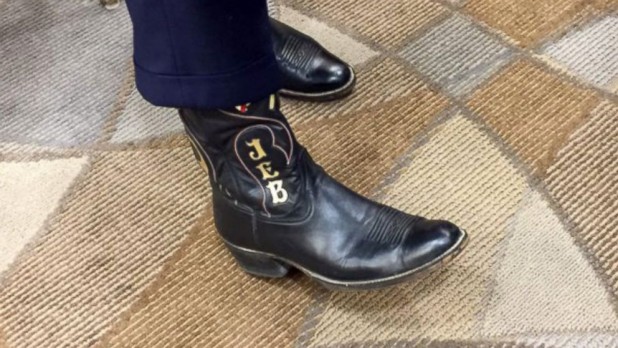
When neocon Ben Wattenberg famously asserted that “The non-Europeanization of America is heartening news of an almost transcendental quality” [The Good News Is The Bad News Is Wrong, p. 84.], he was speaking for the great majority of American Jews and certainly for the organized Jewish community. But America has not yet been non-Europeanized — at least not completely and not irreversibly. The possibility that Donald Trump could begin the process of re-Europeanizing America is horrifying to these Republican Jewish activists.

Another example of Jewish Republican angst, from “Trump, Carson have Republican Jewish establishment worried: Longtime GOP Jewish donors and activists look on in dismay as the two presidential hopefuls lead the polls“:
[Support for Trump is] a disorienting experience for longtime Republican Jewish donors and activists, who have made inroads into the party’s establishment over the last two decades, and who have been at the forefront of advocacy for tolerance and pluralism within the party.
“The tone of what they’re saying, we get painted as a party of intolerance,” said [fundraiser Fred] Zeidman, who practices law in the Houston area and backs Bush’s candidacy. …
[Op-Ed editor of the New York Post Seth] Mandel said online that white supremacist backing for Trump — who has suggested immigrants from Mexico are predominantly criminals — has been unsettling. “That will always make Jews uncomfortable, that’s why there’s so much pushback” among some Jewish conservatives against the Trump candidacy.
For the last 35 years or so, the neocons have been pushing the GOP to the left on social issues — and yes, neoconservatism is a Jewish movement. But notice that, as is so often the case, Jewish interests in a non-European America are presented as fulfilling the loftiest of moral sentiments. It’s all about pluralism and tolerance — virtues that the great majority of Americans agree with (but are completely absent from Jewish rhetoric on Israeli policies). Whites are portrayed as having a moral imperative to become a minority. This is a rhetoric that is uniquely effective in the West, with devastating results. We must understand such claims for what they are: expressions of Jewish ethnic interests that conflict with the legitimate ethnic interests of Whites in preserving their demographic and cultural dominance in societies they founded and have dominated for hundreds and, in the case of Europe, thousands of years.
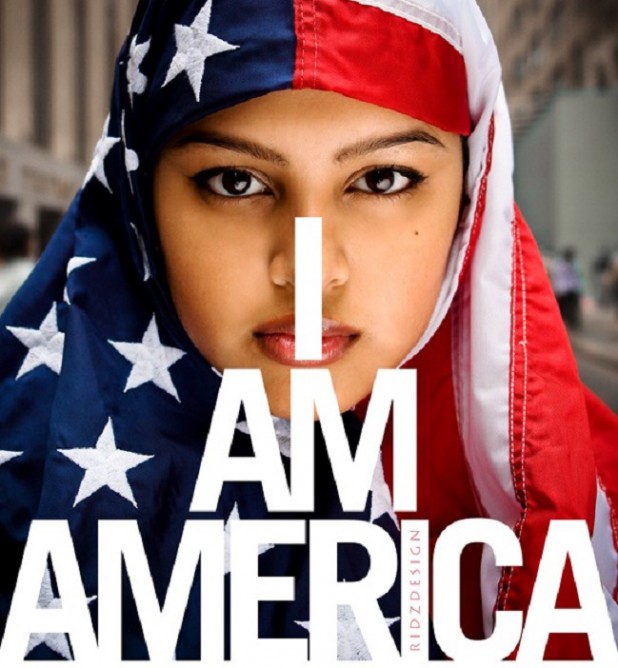
Given this deep concern that Trump may imperil the project of dispossessing White America, it is not surprising that for some Jewish activists, even the most benign statements by Trump conjure up images of Hitler and National Socialism. An example also noted in Peter Brimlow’s article cited above is the statement by Ross Kaminsky writing in American Spectator that again focuses on Trump’s immigration plan:
His plan to require businesses to “hire American workers first” has the stench of xenophobia backed up by the fist of government. Perhaps as a Jew I’m overly sensitive, but when I hear Trump speak I can’t help but think of “Germany for the Germans.”
This is certainly outrageous on its face — isn’t it obvious that US immigration policy should be about the interests of Americans? But actually, it’s not obvious at all. Indeed, it reflects a deep reality—that Jewish attitudes on immigration have a long history of being explicitly unconcerned with the interests of America or its traditional majority population. Rather, the Jewish view is that immigration policy should be based on moral principles, not the interests of Americans. Immigration of all races is a sacred value, far more important than the qualities of the immigrants or what they can contribute to America.
In 1948 the [American Jewish] Committee submitted to a Senate subcommittee a statement simultaneously denying the importance of the material interests of the United States and affirming its commitment to immigration of all races: “Americanism is not to be measured by conformity to law, or zeal for education, or literacy, or any of these qualities in which immigrants may excel the nativeborn. Americanism is the spirit behind the welcome that America has traditionally extended to people of all races, all religions, all nationalities” [stated at a time when the 1924 immigration law biasing immigration to Northwest Europe was still in force] (see here, p. 274; see also pp. 277-278).
Again reflecting the low threshold for linking Trump with National Socialism, Bethany Mandel, also writing in The Forward finds that, as with Kaminsky, Trump conjures up images of Germany in the 1930s:
Since his campaign has taken off, Trump has spent a good deal of energy playing dumb when it comes to the overwhelming nature of the support for his candidacy from white nationalists and neo-Nazis. Worse than Trump’s willful blindness is the rhetoric he uses to stoke racial unrest with a slogan — “Make America Great Again” — reminiscent of the Nazi Party of the 1930s.
Finally, at the most hyperbolic end of the spectrum is Donald Perlstein’s article “Donald Trump, American hustler: The frightening fascist tendencies of his GOP rise,” originally posted at the Washington Spectator but deemed so important that it was re-posted by Salon. Perlstein’s intellectual roots can be seen in his quoting Philip Rahv, “a founding editor of the marquee intellectual journal Partisan Review.” PR was the flagship journal of the New York Intellectuals, an influential Jewish intellectual movement that was an early proponent of the the idea that American democracy required a commitment, as Sidney Hook phrased it in 1948, to “a maximum of cultural [and ethnic] diversity” (see previous link, p. 220) — a good example of Jewish intellectuals promoting the transcendent value of ethnic and cultural diversity as far more important than any material interests of the United States much less the ethnic interests of White Americans.
(Likewise, Evan Osnos, in his New Yorker article on Trump and the White nationalists, cites another famous New York Intellectual who pathologized legitimate White interests, pointing to “the crude tribalism that Richard Hofstadter [see here, p. 195) named “the paranoid style”—and, over the summer, it replicated like a runaway mutation.” These are good examples of how Jewish media figures can easily and confidently plug into Jewish intellectual traditions that are fundamentally hostile to the legitimate interests of the traditional American majority.)
Perlstein all but accuses Trump of being the second coming of Hitler:
Donald Trump is not a fascist––probably.
His ex-wife Ivana once claimed he kept a volume of Hitler’s collected speeches in a cabinet by his bed, and read from time to time the fuhrer’s vision of human life as a pitiless war of all against all. “If I had these speeches, and I am not saying that I do, I would never read them,” he told Vanity Fair in 1990. But consider something the architect of Trump Tower, Der Scutt, once said on how to evaluate the truth value of Donald Trump claims: “divide by two, then divide by four, and you’re closer to the answer.”
Again, the crux of the issue is Trump’s immigration plan:
Trump has now provided more “specifics” about his immigration plan: a forced population transfer greater than any attempted in history, greater than the French and Spanish expulsions of the Jews in 1308 and 1492; greater than the Nabka of approximately 700,000 Palestinian Arabs from British-mandate Palestine; greater than the 1.5 million Stalin consigned to Siberia and the Central Asian republics; greater than Pol Pot’s exile of 2.5 million city-dwellers to the Cambodian countryside, or the scattering of Turkey’s Assyrian Christians, which the scholar Mordechai Zaken says numbers in the millions and required 180 years to complete. Trump has promised to move 12 million Mexicans in under two years––“so fast your head will spin.”
For some reason, Perlstein ignores the expulsion of 12 million Germans from Eastern Europe after World War II — by some estimates the same as the number of illegals in the US now. I suspect that Perlstein sees the German expulsions as just fine even if they resulted in an estimated 2 million deaths and untold suffering. No need to complicate his simple narrative of moral righteousness with the horror of what actually happened to German civilians during and after the war, often with active Jewish complicity (see previous link).
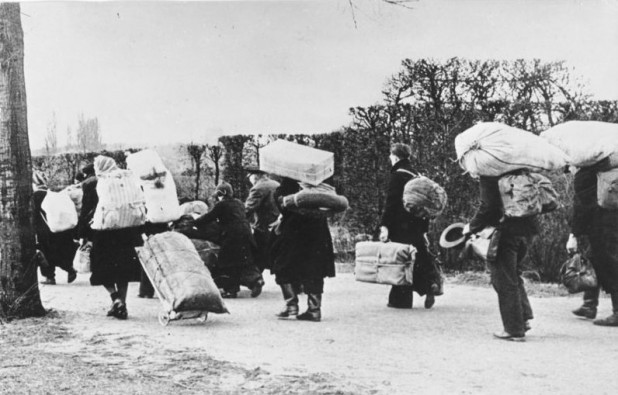
Other signs of incipient American fascism noted by Perlstein:
Last fall, the Public Religion Research Institute found that a majority of whites believe “discrimination against whites has become as big a problem as discrimination against blacks and other minorities.”
Shouldn’t we at least link to a discussion of why this belief is wrongheaded, given the rather hostile attitudes towards Whites pursuing their legitimate interests that are so apparent among the Donald Perlsteins of the world and appearing in elite media outlets like Salon?
A brand new Washington Post/ABC poll finds 57 percent of Republicans support the most massive ethnic cleansing in the annals of humanity (or, what The Washington Post blandly calls “Trump’s tough positions on immigration”).
Actually, most Americans support Trump’s immigration plan. But for Perlstein, Trump and most Americans are incipient fascists for wanting an immigration policy that serves their interests.
Since I can’t really take seriously the notion that Donald Trump would actually attempt, much less succeed, in rolling back the last 50 years, I see these expressions of Jewish angst more as a sign of Jewish political neurosis than anything rooted in reality. These writers and political operatives have an incredibly low threshold for detecting incipient fascism. But make no mistake, this political neurosis is having and will continue to have very real effects on the 2016 race. One can only imagine the deluge of propaganda if indeed Trump was seen as having a very real chance of winning. The 1964 ads predicting nuclear Armageddon if Barry Goldwater was elected would be small potatoes by comparison.
Pictures/captions added by the Daily Stormer
